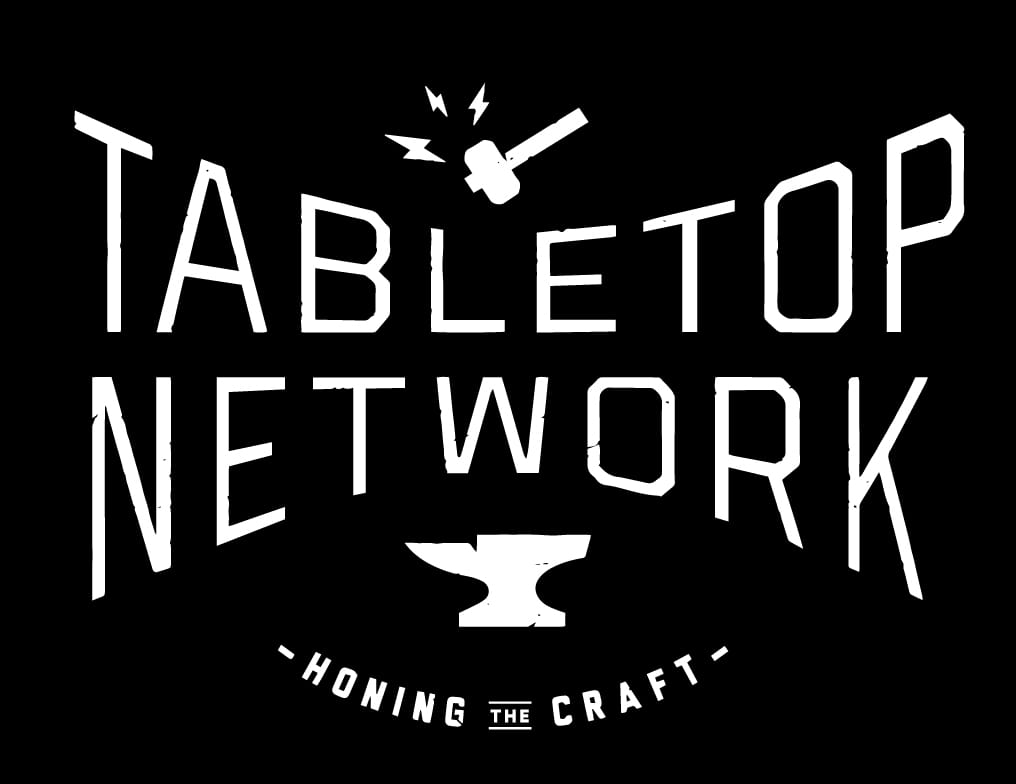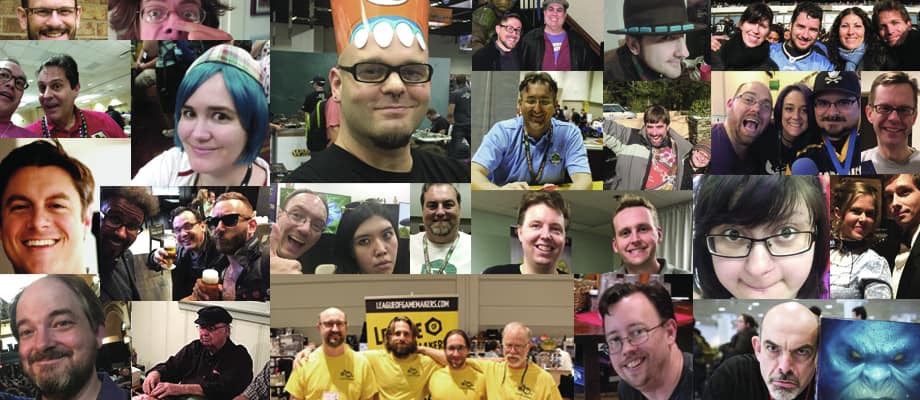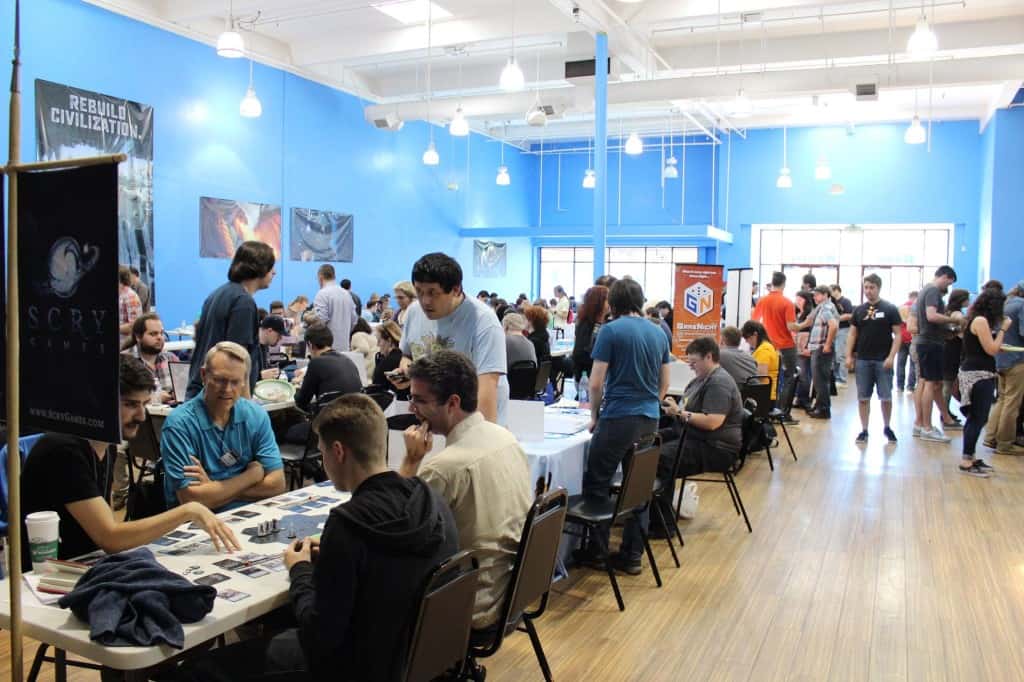
Ray Wisneski has been in the hobby game business for 14 years. He co-owns a chain of 3 Game Kastle stores in the San Francisco Bay Area in Santa Clara, Fremont and Mountain View. Ray is a gamer himself, playing games weekly with his long-time friends. He plays a bit of everything: tabletop games, RPGs and miniature games. I sat down with Ray for our interview at his brand new 10,000 square foot Mountain View store which recently hosted Protospiel San Jose 2016.
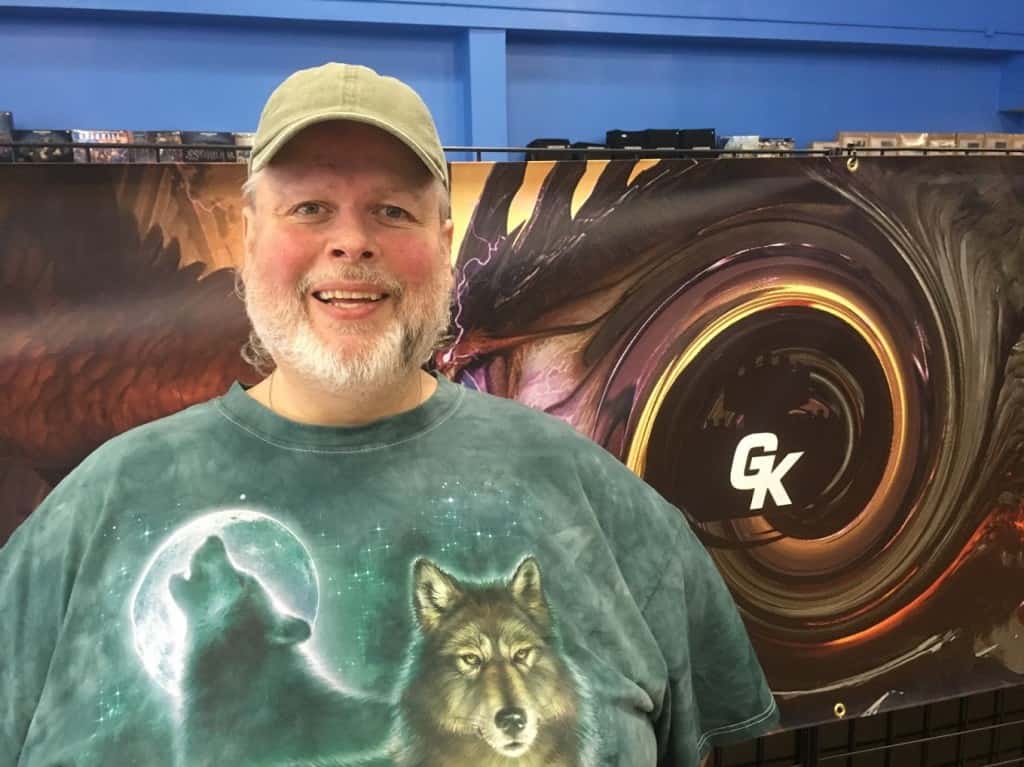
What do you love most about games?
Definitely, the social interaction. It’s a way to sit around with your friends and not just watch TV. You are getting a type of interaction you can’t get anywhere else. I love those sudden outbursts [of emotion] that can happen in games. You can hear those happening in the store too.
What have you learned in your business over the past 14 years?
I learned to take risks and see if they pay off. As we open new stores, we look for the right fit for the community. For our second store, we went for something smaller and comfy. For our third store, we went bigger and better. Also, I learned to limit my number of distributors. With 3 stores, I only want 2 or 3 distributors, otherwise it just gets too complicated to do ordering.
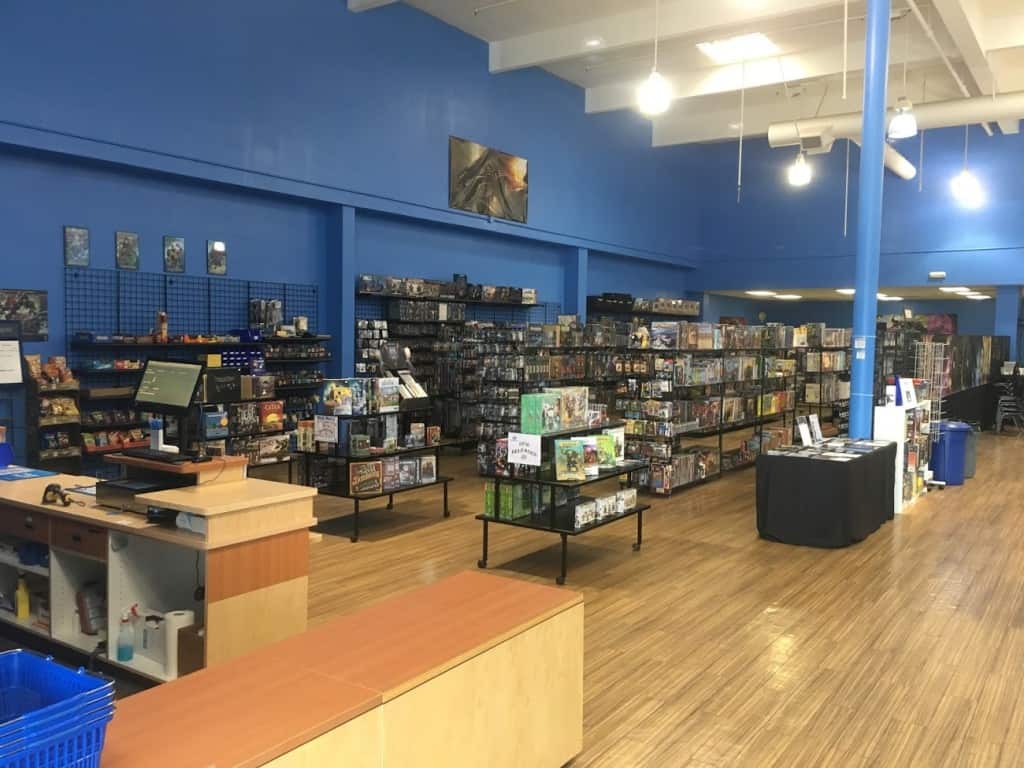
How has you customer base changed?
The community has really grown and we’ve help it grow and mature. You thrive as the community thrives. We also see so many more women and families. There are more couples who come to game nights. 15 years ago it was almost exclusively male. Now, women are feeling more comfortable in gaming environments and men are being more inviting.
You sell tabletop games, CCGs, RPGs, and miniature games. Is there a lot of crossover between the players?
There is some, especially among Magic players. Gamers are curious about other stuff. Gamers like to experiment.
How have games changed?
Some games haven’t changed. Catan has been a bestseller since day 1 and it’s still a big seller. What’s great about that game is that it is more than just roll the dice and move along a board. I also won’t forget Dominion and how it created a whole new craze of deckbuilding. New mechanics have come along. Production values have come a long ways. People love Magic and Fantasy Flight Games since they put a lot of money into production values.
How many games do you keep in stock?
Thousands of games if you combine all 3 stores, though numbers are not as important as stocking games that folks desire. Also, we try to be diverse in our offering. People see new things in our stores they haven’t seen before in other stores.
How much does a successful game sell?
100 per year. Some games are hotter than that, like 100 per month.
“I HAD 40 COPIES OF PANDEMIC LEGACY PER STORE AND WE SOLD OUT BEFORE WE KNEW IT.”
Are there common characteristics of games that sell?
It’s so diverse. I do all the ordering and read about new games. I pay close attention to the publisher, the designer, how it looks, research it on BGG, read early reviews, and see if there is buzz from my customers.
Are there common characteristics of games that don’t sell?
Copycat games. Here’s another Cards Against Humanity game. Here’s another dungeon delving game, another zombie game. Someone is getting their [copycat] game out quickly from some unknown publisher. For games on Kickstarter, it can make a big difference how it funded. If a game made $3MM already on Kickstarter, it will do well in the store despite what you might think. If a game barely funded, it might not do well. Retail stores have to be careful of Kickstarter games that are selling leftover copies from campaigns. Oftentimes, they are trying to sell off the rest of their stock and that game won’t be supported or reprinted.
Is the number of hits per year rising over time?
Slowly increasing. The industry is thriving. It was thriving even when the economy was at its worst. It is what people want. This is the decade of the geek. Geek is chic. People are accepting of geek culture.
“THERE IS NO STIGMA ANYMORE OF BEING IN A GAME STORE.”
Has the average board game price increased? If so, is that a good thing?
Yes, the price has increased. At first, I was concerned. People used to hem and haw over a $40 game. But people have realized the quality of games has gone up and that they get more bang for their buck. Fantasy Flight has really pushed the boundaries of price with $80 and $100 games, and yet, those games are selling fantastically. Not the same as a $60 game, but still really good and you would think it would be a lot lower. Not all $100 games do well. 504 deserves a bigger audience, but the price hurt it.
Are gamers price conscious?
Families are price conscious. If an experienced gamer wants a game, they will buy it. The price tag doesn’t matter.
Has the average box size increased? If so, is that a good thing?
Yes, it has. The bigger box games sell faster, ironically. I wish the gaming industry had a standard four box sizes to make it easier for game stores. I know some publishers put a few components in a big box, but I’d rather have a game box that is too big than too small. One problem with an expansion is if it is too small, it’s hard to put on the shelf. Even if the game is too big to put on a shelf, I can tell people I can get it for them. Too small is no bueno.
Do you have any advice for new publishers?
Go through distribution. A lot of people don’t like using distribution because they take a cut of the profit. Many retailers like us prefer going through a 1 stop distributor. So you increase the likelihood I will stock your game if you go through a distributor.
What is your relationship with publishers?
We work together on events, tournaments, and demos. It’s a really good relationship. Publishers will find demo people for our store events.
Do you have any advice for new designers?
Make a fun game. [Laughs]. Take advantage of your resources like local game stores to run demos of your game to get feedback. If you are only playing your prototype with friends and family, you are missing out on opportunities. Play other games and see why they are good.
Are customers aware of game designers?
The majority of gamers are in it for playing games and don’t pay attention [to the designer]. Serious gamers want to know when the next Uwe game is coming out. They are very excited about it.
“GAME DESIGNERS, UNLIKE DIRECTORS OR AUTHORS, DON’T GET THE RESPECT THEY DESERVE.”
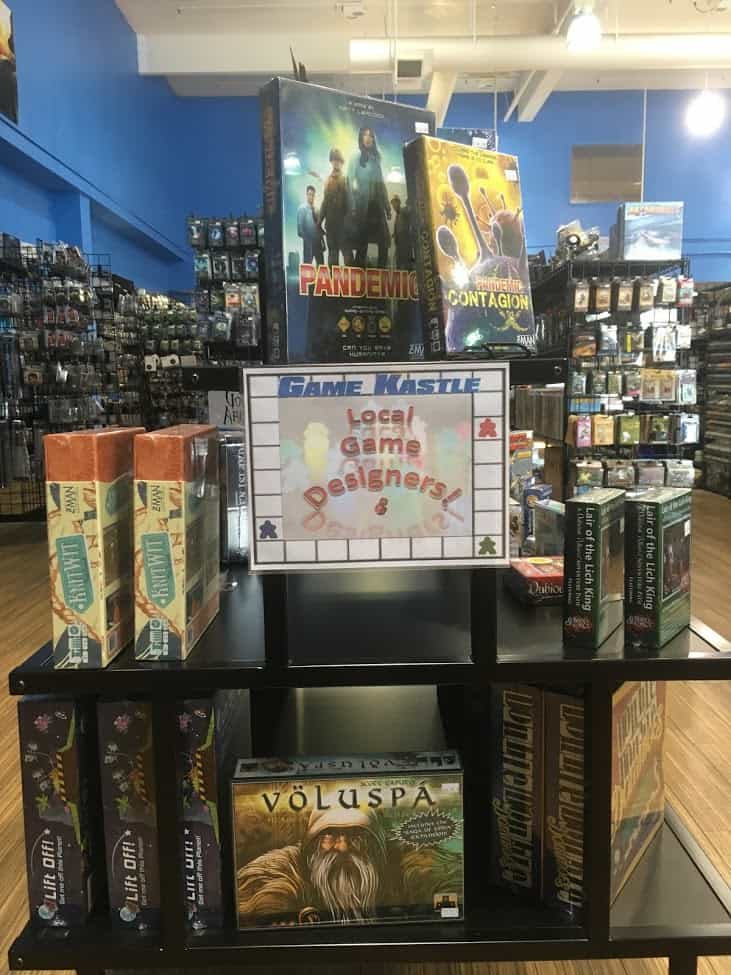
What are your thoughts on Kickstarter?
It’s a love hate thing. I love that Kickstarter has brought attention to games, getting people excited about games. On the flip side, it cuts into the profit of retail stores. Some big name companies use Kickstarter who don’t need to, which hurts our bottom line. I Kickstart games. I dislike it when I notice I didn’t receive a game and contact them about it. They send the game out, but why did I have to ask about it? Also, why do I sometimes see a Kickstarter game on my store shelf before I get my own Kickstarter copy? The risk of Kickstarter is that it is all about eye candy and not about the game mechanics. People are hoping the game will be good.
How do you deal with competition from online retailers and big box stores?
We do what we do best. Nobody does it better. We focus on what we do. You can’t compete with online. We got bad Yelp reviews because the reviewer said our prices are too high. We sell games at MSRP. We can’t sell games at a discount and have a play space. We help the community grow by providing a place to play games. I never realized how appreciative people were until we opened our Mountain View store. It was a cool experience to host Protospiel San Jose. There were 300 people here, which created an amazing convention vibe.

What do you think of board game cafes?
It’s a great concept. I considered it for my Santa Clara store, but it would involve a lot of time, money, health codes, and red tape. Board game cafes serve a need in the community that’s not being met. People beg me to bring beer into the store, but we can’t have alcohol for legal and insurance reasons. I am still looking at ways to add food to my stores in the future.
Any other trends you are excited about?
I like seeing games evolve. People are elevating games. For example, take Onitama. It’s a very simple elegant game like chess except it has new aspects of strategy since it is also card-based. Pieces moved based on cards you play. You then pass your card to your opponent who can use it too. This shows me there is room for growth even in games like chess. It’s very exciting to see.

